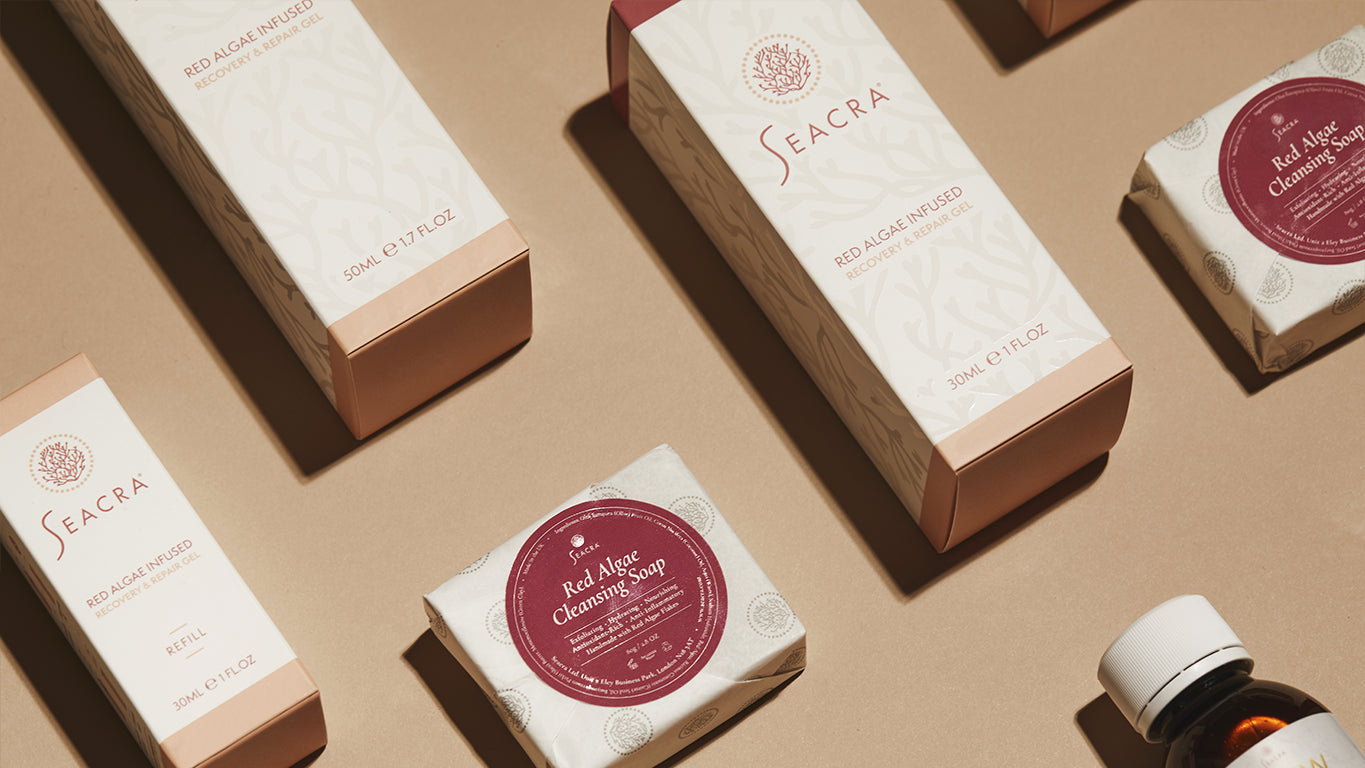Retinol is a popular treatment in skincare due to its’ versatility. The problem with retinol or retinoids is that it can damage your skin and cause increased sensitivity to the natural world we live in.
Almost immediately after retinoids were recognised as one of the most effective treatments for acne and other skin conditions, they became sought-after by people with all kinds of complexions—from ‘normal’ to those suffering with Roseaca or Acne, where their skin is already increasingly sensitive and damaged.
There is a natural alternative to retinol. One where you get the benefits of Vitamin A on your skin but without the damaging side-effects. Let’s dive in to the Retinol 101 and why natural alternatives to retinol may not only increase the health of your skin but give you the complexion you’re looking for.
What is Retinol?
Retinol is a class of chemical compounds that derive from Vitamin A. Retinoids is a catch term for an array of Vitamin A based products on the skin. Retinol and retinoid are vitamin A derivatives used to improve the texture and appearance of skin. The main difference is how strong they are.
Retinol is a multipurpose skincare product that is a type of retinoid derived from vitamin A.
What are the different types of Retinoids?
There are six different types of topical retinoids, some are prescription, and some are over the counter or ones that you can buy from your favourite skincare company or retailer.
The 6 classes of topical retinoids include: Tretinoin (all-trans retinoic acid), adapalene, tazarotene, trifarotene, alitretinoin, and bexarotene.
These six classes of retinoids vary in strength and their application. Some are used for photo-ageing of the skin, some to help improve the immune response to psoriasis and some for even treating T-cell lymphoma, a rare type of white blood cell cancer.
What are the benefits of Retinol?
You probably have retinol in your skincare cabinet. Retinol is used to improve the texture and appearance of the skin. It can be used to smooth fine lines and wrinkles, lighten dark spots, treat acne and unclog pores.
Retinol can help stimulate the production of collagen, which helps to thicken and plump the skin, making it a great anti-ageing product.
How do you use Retinol?
Most people use their retinol in their evening skincare regimen. The reason for this is that retinol can increase your skin’s sensitivity to the sun and therefore it’s not advised to apply your retinol at the beginning of the day.
You must always apply SPF, come rain or shine, but this is particularly true if you are using retinoids.
What are the side effects of using Retinol?
"Retinisation" is a term used to describe the side effects of using retinoids such as redness and peeling. Because it is a strong active ingredient in skincare, side effects like peeling and redness are often observed and can last for 3 to 4 weeks.
Some people who use retinoids have experienced inflammation of the skin. This is probably because their skin is too sensitive for highly active ingredients. To get the best results, it is advised to use retinoids less often- once per week- and avoid using any other active ingredients with it - such as Vitamin C.
This is where the infamous Tik Tok trend skin cycling came in, because using retinoids on the skin every day makes it too sensitive. By using it every three-days, you get the benefits but without so much damage and sensitivity.
But, why would you knowingly use a chemical that’s so damaging on your skin?
What are natural alternatives to Retinol?
Red Algae is a natural alternative to Vitamin A, making it a natural alternative to retinol. It’s Vitamin A that is the active ingredient and superstar in anti-ageing, smoothing skin, improving texture and tone and increasing flexibility.
Why is Red Algae a good natural alternative to Retinol?
Red Algae is rich in Vitamin A, making it the perfect natural alternative to retinol. It provides all the benefits but without the harshness and increased sensitivity. The natural source of Vitamin A in Red Algae works with the skin, keeping the skin barrier intact, protecting the cells underneath.
The many ways in which red algae can benefit the skin:
Red algae in the deep ocean would have been destroyed by ultraviolet light without a powerful antioxidant. The algae has evolved Astaxanthin-nature's strongest known antioxidant which is 6,000 times more potent than Vitamin C—to survive ultraviolet radiations. In the same way, this powerful antioxidant fights off free radicals in your skin that leads to premature ageing and other problems like sunburn or hyperpigmentation.
Red Algae's anti-melanogenic properties make it a great choice for skin pigmentation treatment, by inhibiting the excess production of melanin—which is responsible for pigmentation and uneven skin tone.
Its anti-inflammatory properties make it the perfect ingredient for those who have sensitive skin prone to rosacea. As our clinical trials show, reddening decreased by 21% after using the gel for just 28 days.
You can read more about our gel and shop it in Red Algae Recovery & Repair Gel.




